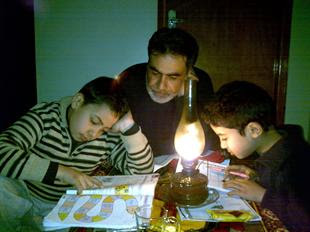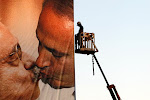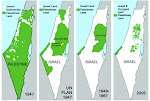Blogging for Zion: 1000 geeks and trolls volunteer for media war in cyberspace

More than 1,000 new immigrants and foreign-language-speaking Jews are new recruits for an unofficial army of bloggers set up by the Israeli Absorption Ministry and Foreign Ministry. They've volunteered to systematically comment on controversial blogs and make sure the pro-Israel viewpoint gets prominent exposure. This is a boost to a similar cyber-campaign by CAMERA (Committee for Accuracy in Middle East Reporting in America), a Boston-based lobby which has 55,000 activists monitoring the press for articles and broadcasts critical of Israel and firing off complaints and corrections to the top editors. Last year they launched a stealth campaign on Wikipedia to counterspin whatever they perceived as anti-Semitic, anti-Israel bias. Just two days after the Israeli Defense Forces unleashed a shock and awe campaign in Gaza, the military entered cyberspace with a vengeance and put up their own YouTube propaganda channel, with footage of missile strikes. Some of their 45 videos and vlogs were removed by YouTube censors, but others have been viewed 600,000 times. Inevitably, there is an organized Electric Intifada to counter the counterspin,too.
A guest post from Itamar Eichner examines the trend:
Arye Sharuz-Shalicar, 31, whose parents emigrated from Iran to Germany, is a one-man PR show. He speaks Persian, German, English, French, and Spanish and can also get by in Russian, Turkish, Arabic, and Italian.
Sharuz-Shalicar is one of the front-line soldiers in the Ministry of Absorption’s new “army of bloggers” that was recently established in cooperation with the Foreign Ministry’s public relations department following Operation Cast Lead in the Gaza Strip.
The Absorption Ministry is recruiting new immigrants and Jews living abroad who have access to a computer and who speak a second language to a volunteer effort to improve public relations for Israel on the internet. The campaign was launched last week.
In the cross hairs are problematic blogs, talkbacks, online social networks, online polls, Youtube videos, and more.
The ministry was amazed by the massive response to the effort. More than 1,000 interested applicants contacted them, of which 350 are Russian speakers, 250 English speakers, 150 Spanish speakers, 100 French speakers, and 50 German speakers.
A range of other European languages are also represented among the volunteers: Portuguese, Swedish, Dutch, Italian, Romanian, Hungarian, Polish, Greek, Bulgarian, and Danish. Persian-, Turkish-, and Arabic-speaking Jews also offered their services. The ministry even got an application from a Chinese speaker.
Some 60% of the applicants are immigrants, old and new. The rest are Jews living in the Diaspora, Israelis living abroad, and even non-Jews who support Israel and want to help out.
The Absorption Ministry forwarded the volunteers’ details to the Foreign Ministry, which briefed them via email and provided up-to-date material on the situation, including video clips that could help them in the field.
While the Absorption Ministry is tasked with recruitment, the Foreign Ministry will be responsible for directing the volunteers online. Each time the ministry identifies an anti-Israel trend on a foreign-language blog, news site, or other website, it will immediately put out a message to the volunteers to flood the site with pro-Israel opinions.
Absorption Ministry Director-General Erez Halfon commented, “This provides an important opportunity for new immigrants, who have always been a strong Zionist nucleus, to feel like they are contributing to improving Israel’s image in the world. The foreign-language-speaking immigrants are a real asset, and it is important to take advantage of this. From our perspective, it was like an emergency call up, and I am thrilled that the response was so great.”
Noam Katz, director of the Foreign Ministry’s PR department, said, “We are in the process of thinking how to utilize these volunteers not only during conflict, but also during regular times as well.”
Miriam Schatzberger, 25, a new immigrant from Germany, joined the ranks of the ministry’s volunteers.
Schatzberger said, “I surf the German websites, and I was shocked by the anti-Israel reports. It is really smart to go on these blogs, to introduce myself as an Israeli and just to talk to them in order to try and balance out the picture.”













































